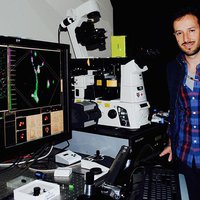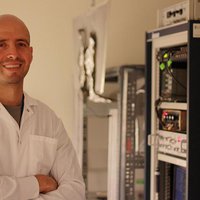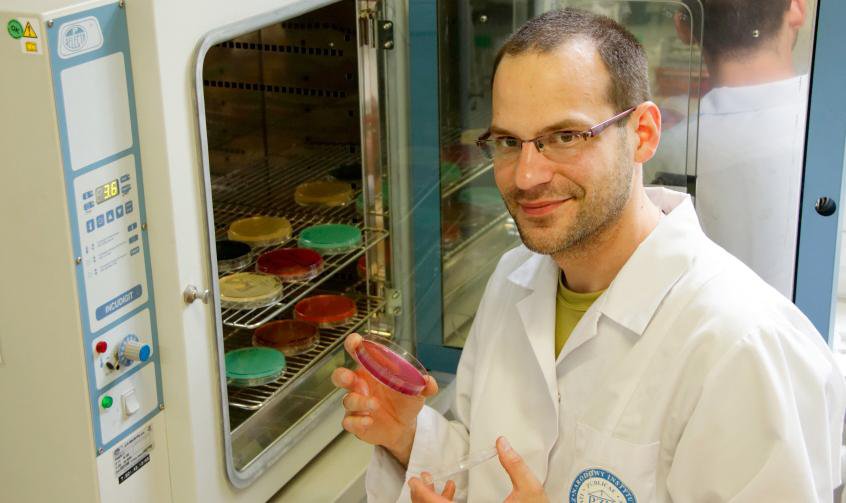"During the first few days, the symptoms of the Ebola virus are no different from those of the common flu. The virus is highly contagious at this stage, though the patient may not even be aware that he is carrying the virus. To avoid spreading the virus, when someone is suspected of being infected with Ebola, rigorous quarantine protocols are activated whilst awaiting a firm diagnosis. Given the harshness of the safety measures applied, diagnostic tests are usually performed twice in order to avoid false positives and unnecessary quarantines. The young innovator Tomasz Wolkowicz has developed a test that is capable of confirming this diagnosis more simply, quickly and inexpensively than the current methods, and is also capable of identifying the precise strain of the virus causing the infection.
“The most widely used diagnostic test is based on the detection of genetic material belonging to the Ebola virus”, within the biological sample taken from the patient, Wolkowicz explains. To this end, specific probes are used to amplify a certain fragment of the virus genome, which results in DNA molecules of a certain size which can be separated and viewed using a technique called electrophoresis. The presence of DNA of this specific size constitutes the first stage of the diagnostic process. The second requires “confirmation that the presence of this DNA is in fact caused by the Ebola virus, and does not represent a false positive”, the researcher clarifies. The way this is currently achieved is to read the DNA sequence obtained by the test and confirm that it matches the genome fragment belonging to the virus, or by performing another molecular test for another genome target.
Tomasz Wolkowicz was performing his doctorate research at the Bacteriology department at the National Institute of Public Health – National Institute of Hygiene (NIPH-NIH) in Poland when the outbreak of Ebola in West Africa occurred. Given that he was already working in a biosecurity laboratory in charge of diagnosing potential cases of Ebola in Poland, the researcher decided to check for the existence of more effective and less expensive alternatives to current methods. Using his knowledge of molecular techniques based on the presence of certain genomic sequences from the pathogens he was accustomed to working with, he discovered that these techniques were also applicable to the Ebola virus.
Certain proteins, called restriction enzymes, are capable of cutting DNA when they encounter a specific sequence within the molecule. Wolkowicz discovered that two of these enzymes, commonly used in molecular biology laboratories, could cut the genomic fragment belonging to the Ebola virus which is amplified by the diagnostic technique, thereby producing further, smaller fragments of a very specific size. In other words, it is not necessary to obtain the full sequence of the resulting DNA fragment, but rather a simple electrophoresis can reveal whether the DNA has been cut by these enzymes, thereby confirming that it is in fact a fragment of the Ebola virus.
This young, Polish innovator has also discovered that different strains of the Ebola virus produce different “cut patterns”, which allows the test to differentiate between Zaire and Sudan ebolaviruses, the two most prevalent strains, that differ in severity, treatment and its ability to spread.
This test is faster, and above all else cheaper and easier to implement in portable laboratories, unlike the sequencing method applied to the product of the first test. The current diagnostic test is relatively expensive and difficult to implement in field hospitals in countries with limited resources since it requires sophisticated equipment, as confirmed by the Director of Bacteriology at NIPH-NIH, Rafal Gierczynski. The adoption of the technique developed by Wolkowicz would allow a definitive diagnosis of the disease to be performed in the field.
For Robert J. Cysewski, the founder and executive director at R&D Farm and jury member for MIT Technology Review´s Innovators Under 35 Poland awards, Tomasz Wolkowicz´s technology “substantially improves the diagnosis of the Ebola virus and has the potential to save lives around the world”."




